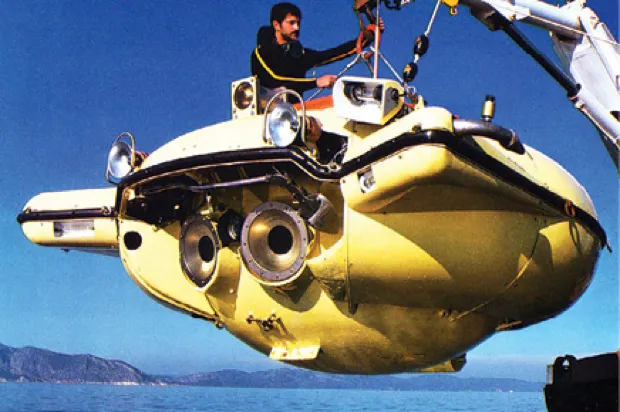Why would we need underwater cities?
As sea levels and populations rise, and we begin to run out of space on land, some pioneers think that we should begin to colonise the oceans.
French architect Jacques Rougerie, now aged 73, has designed dozens of underwater habitats over his career. In a boatyard in Bordeaux lies the first component of his latest idea: SeaOrbiter, a floating research colony that extends 31m beneath the surface.
Meanwhile, Canadian inventor Phil Nuytten imagines a settlement much deeper underwater, which would harvest resources from thermal vents. We’re not talking city-sized habitats yet, but every journey starts with a single step…
Has anyone already tried living underwater?
Diving pioneer Jacques-Yves Cousteau built the first inhabited underwater habitat in 1962. Called Conshelf 1, this steel cylinder was home, for a week, to two divers. They were submerged off the coast of Marseilles at a depth of 10m, studying marine life and even building an underwater farm.
Underwater living isn’t just for oceanographers, though. In 1970, an all-female team of US ‘aquanauts’ spent over 10 days 15m underwater in the Caribbean. The aim of the mission, called Tektite II and part-funded by NASA, was to study the psychological effects of living in close quarters, in an environment similar to that of a spacecraft. Nowadays, there are a handful of underwater research labs around the world.

What are the main obstacles to living underwater?
Breathing is an obvious issue. Oxygen will have to be supplied from the surface, and underwater citizens will also need access to fresh water, food and power.
One of the most ambitious habitats to be proposed so far is Japanese architectural firm Shimizu Corporation’s ‘Ocean Spiral’. This deep-sea city would use the temperature difference of deep and shallower waters to drive a power generator, while drinking water would come from desalination technology, and food from underwater farms. The aim is to house 5,000 people by 2030. The cost? A mere $26bn. Our oceans may be closer than outer space, but they’re just as expensive to explore.
Marnie Chesterton is the presenter of Underwater Cities, an episode of CrowdScience. It can be streamed at bit.ly/crowd_science_underwater
Read more fromCrowdScience:
Subscribe to BBC Focus magazine for fascinating new Q&As every month and follow @sciencefocusQA on Twitter for your daily dose of fun facts.
